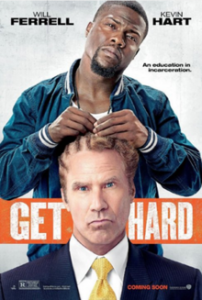Stuart Hall poses the question “what sort of moment is this in which to pose the question of black popular culture?” in his article What is this “black” in black popular culture (Hall, 1993). He outlines the three key moments in history which lead to the formation of ‘black’ culture, which includes most notably the decolonization of the Third World and the “emergence of decolonized sensibilities” (Hall, 1993). In this it seems by disengaging with the oppressive ancestors, the “dominant culture” can appropriate the minorities’ culture and freely engage with it to any capacity including referring to it as ‘black’ culture.
Appropriation of other cultures is far too frequently done by the “dominant culture”, by “dominant culture” I am referring to the ‘white’ culture that has been excessively used in meme culture to identify the caucasian race. There are numerous examples especially in modern cinema where racist dialogue is used in cultural exaggeration for comedic purposes; in Get Hard (2015) Will Ferrell plays a wealthy investment banker who is arrested for fraud and is sent to San Quentin prison, in order to survive he hires Kevin Hart to teach him how to “toughen up”. There are obviously multiple things wrong with this plot and most obvious is the racist perception of Ferrell’s character who assumes Hart has been to prison because of his race. The fact that this movie is a recent release is very disturbing and shows there is still a segregative force between the “dominant culture” and minorities. This movie is not used as a thinking piece to show there is racist perception dominating popular culture, in my opinion this movie is a worthless expenditure of resources and cultivates a segregative view by perpetuating the dominant culture’s opinion that a racist stereotype is representative of a whole culture.
By showcasing the racist ideologies appropriated by the “dominant culture”, it creates a dialogue that could lead to a reduction in the free engagement of appropriation by the “dominant culture”. The parodying of a culture, by the culture itself, to draw attention to overt power structures in a way that tries to dismantle the underlying assumptions of the culture may achieve some progress in creating cultural equality.
Ultimately my opinion is insignificant compared to the opinion of the culture that is affected by the segregative influence of modern cinema and the creation of ‘black’ popular culture, it is their voice that should be heard. Look at the blog Black Girl Dangerous for analysis of the multiply-marginalized experience by intersecting systems of oppression.
http://www.blackgirldangerous.org/
Hall, S. (1993). What is this” black” in black popular culture?. Social Justice, 104-114.

